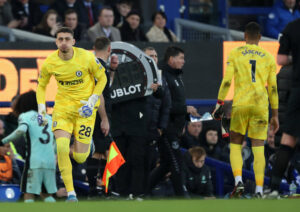Yesterday, it was announced via Facebook that Carlos Alberto Torres, Brazil’s World Cup-winning captain in 1970, had died aged 72.
Described in the post as “our eternal captain”, Alberto will always be remembered for scoring one of football’s greatest ever goals in the 1970 World Cup Final. He will forever be associated with that particular moment, but the rest of his career and life was just as fascinating and impressive.
Club career
Carlos Alberto joined Fluminense in 1963, aged 19. It was not long before his career began to flourish; in 1964, he made his first appearance for the Brazilian National Team and won the Rio de Janeiro State Championship with Fluminense.
Two years later he signed for giants Santos, teaming up with the likes of Clodoaldo, Coutinho and Pelé. In his eight years at the club he won the São Paulo State Championship four times, including three in succession between 1967 and 1969, and became a mainstay in one of Brazilian football’s best ever sides.
In 1974, he went back to Fluminense, where he won a further two Rio de Janeiro State Championships. He made a controversial move to fierce rivals Flamengo, but his spell there did not last long as he moved to the United States to play for the New York Cosmos. Reunited with Pelé and playing alongside the great Franz Beckenbauer in defence, he had a successful four seasons in New York, winning three NASL Soccer Bowl Championships.
He spent a year playing for California Surf before returning to the Cosmos in 1982, where he won another Soccer Bowl Championship. This proved to be his last hurrah as a player, retiring from the game aged 38.
International career
Alberto won his first cap in 1964 and spent a further thirteen years playing for Brazil, making 53 appearances and scoring eight goals—an impressive return for a right-back. He was controversially left out of the 1966 World Cup, which was a disaster for the national side. The team soon made up for this little blip, not before Alberto was made captain aged just 23 in 1968; a particularly impressive achievement considering the number of more experienced legends who were already in the Brazilian side.
An injury sustained before the 1974 World Cup meant that Mexico 1970 was his only appearance at football’s premier competition, but he certainly made the most of it. Alberto played every single minute as Brazil won a record third Jules Rimet and were allowed to keep the trophy as a result.
The defining memory of Brazil’s triumph in 1970 is not Jairzinho’s scoring exploits in every single game or Pelé’s performances, but Alberto’s goal in the final. Already 3-1 up, the Brazilian players put together a staggering passing move which featured multiple pieces of mesmerising skill, which culminated in the captain smashing the ball home to seal the match. Widely considered one of the best goals of all time, Alberto has remained modest about his achievement:
“Anybody can score a goal, but in that move nine different players touched the ball before the goal. But I was lucky, because I scored the goal.”
Alberto played regularly for the national side for a further seven years, before retiring from international football in 1977 aged 33.
Coaching career and later life
Alberto chose to stay in football after he retired from playing, spending over 20 years as a manager at various different clubs. He had a career as a very respected pundit on Brazilian TV, as he was able to transfer the footballing intellect he showed on the field into analysing the game.
Carlos Alberto the player
A very intelligent footballer, Alberto had an enviable ability to read the game and was an excellent playmaker: an attribute shared by only the greatest of full-backs. The strength of his, however, for which he will be most fondly remembered is his leadership. Becoming captain of Brazil at such a young age was one thing, but leading his team to World Cup glory, becoming the youngest captain to lift the trophy in the process, was quite exceptional.
His sudden death has been met with much mourning in Brazil and the rest of the footballing world, but the life and career of Carlos Alberto deserves to be celebrated. One of football’s greatest, he is an example for future generations of defenders to follow.
Main Photo






